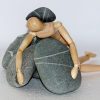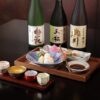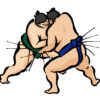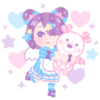What does “emoi” mean? エモい

The word “emoi(エモい)” has been used among young people recently.
Have you ever heard of it?
Actually, it seems that some young people often use it without understanding its meaning.
Anyway, let ’s take a closer look at “emoi”.
What does “emoi” mean?
The meaning of “emoi” is as follows;
Nostalgic
Sorrowful
Tasteful
Be excited
Lyrical
Ephemeral
Impressed
Emotional
It is not used to represent just one of the above.
For humans, not only simple emotions but also complex emotions can be felt.
Young people seem to use this word when it cannot be expressed immediately.
In many cases, this word has a positive meaning.
It can be said that young people’s feelings that they cannot express their emotions straight.
“Emoi" is a coined word with the English word “emotional(エモーショナル)" abbreviated to “emo(エモ)" and the suffix “i(い)" used to make it an adjective in Japanese.
There are various theories about the origin of this word, and others will be described later.
“Emo" + “i" = “emoi(エモい)"
By the way, Japanese people often create adjectives by adding the adjective suffix “i” to English words. For example;
Naui(Now+i、trendy)
Eroi(Ero+i、erotic)
Guroi(Gro+i、grotesque)
“Emoi” was used as an Internet slang. Gradually, it has been used for everyday conversations, among young people, in the last few years.
However, because this word has many meanings, it is said that some young people do not know how to use it.
“Emoi” has been around since 2007, but it became widely known as a publisher in 2016 put this word in its ranking and announced it.
Example usage of “emoi”
“Emoi” is used as follows, for example.
(Because there are several meanings included in this word, it is necessary to determine from the context when you hear it.)
Kono keshiki, emoi.
この景色(けしき)、エモい。
This scenery is very beautiful, nostalgic, impressed, breathtaking, etc.
Nanka kono uta emoi kara suki.
なんかこの歌(うた)エモいから好(す)き。
I like this song because it ’s touching, wonderful, touching, nostalgic, captivating, etc.
Kono hito emoi e wo kaku ne.
この人(ひと)エモい絵(え)を描(か)くね。
This person’s painting is so wonderful, touching, nostalgic, captivating, etc.
Emoi shasin toreta kara shea.
エモい写真(しゃしん)撮(と)れたからシェア。
I took a very nice photo and will share it with you.
Kono ongaku emoi —.
この音楽エモい。
This music is emoi.
Kono shasin emomi ga deteru.
この写真エモみが出てる。
This photo is full of emomi(noun of emoi).
うわ~、この写真、エモい!
Uwa—, kono shashin, emoi!
Wow, this photo is emoi!
Koyoi no tusuki wa kanari emoi. Totte mita.
今宵の月はかなりエモい。撮ってみた。
Today’s moon is pretty emoi. I took a photo.
Houkago no kyoushitsu wa emoi…
放課後の教室はエモい。。。
The classroom after the school is very emoi. . .
Natsu wa emoi mono ga oosugiru.
夏はエモいものが多すぎる。
Too many emoi things in summer (seasonal scenery, foods, events, etc.)
Sanpochuu ni totta emoi shasin wo mitekure!
散歩中に撮ったエモい写真を見てくれ!
Look at the emoi pictures I took during the walk!
Arigatou. Emoi kimochi de ippai.
ありがとう。エモい気持ちでいっぱい。
Thank you. I am full of emoi feeling.
Yappari fesu wa emoi. Kite yokatta.
やっぱりフェスはエモい。来てよかった。
After all the music festival is so emoi. I’m glad I came.
Yuugata no fujisan, emosugi.
夕方の富士山、エモすぎ。
Mt. Fuji in the evening is pretty emoi.
Ame wo nagamenagara attakai nomimono wo nonderuto emoi kibun ni naru.
雨を眺めながらあったかい飲み物飲んでるとエモい気分になる。
Having a warm drink while watching the rain makes me feel emoi.
Ryoushin ga hoomu de te wo futte miokutte kureta yo. Emo katta.
両親がホームで手を振って見送ってくれたよ。エモかった。
My parents sent me off waving on the platform. It was emoi.
Kyou, saifu wasurete hirunuki. Emoi.
今日財布忘れて昼飯抜き。エモい。
Forget my wallet today so I have no lunch. Emoi.
Akogare no A-san to futari de nonda. Emokatta—.
あこがれのAさんと二人で飲んだ。エモかった~。
I drank with Mr. A who I was longing for. It was so emoi—.
“Emoi" used for a long time
There are also two types of “emoi” that have been used for a long time.
The first is from a music genre called “emo”. This is emotional hardcore music that has emotional expressions while being hard rock.
In Japan, “emoi” was used when talking about this type of music and fashion around the 90s.
The second “emoi" used to indicate a perverted and unpleasant person among high school girls. The girls used to be called “ko-gyaru" and created the word in the early 2000s.
“E" of “e-mo-i” is from “e-ro-i (pervert)” and “mo” is from “ki-mo-i (unpleasant)” and “i” to make a word as adjectives.
Although it was introduced in TV programs and magazines for a while, it did not spread so much throughout the country.
















